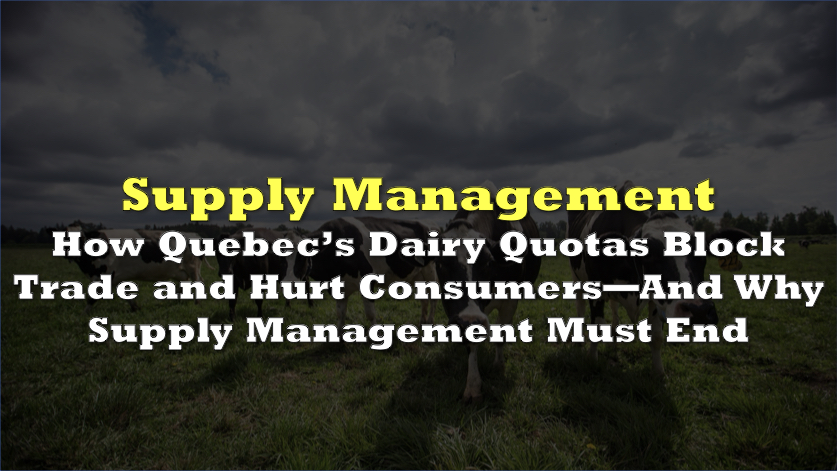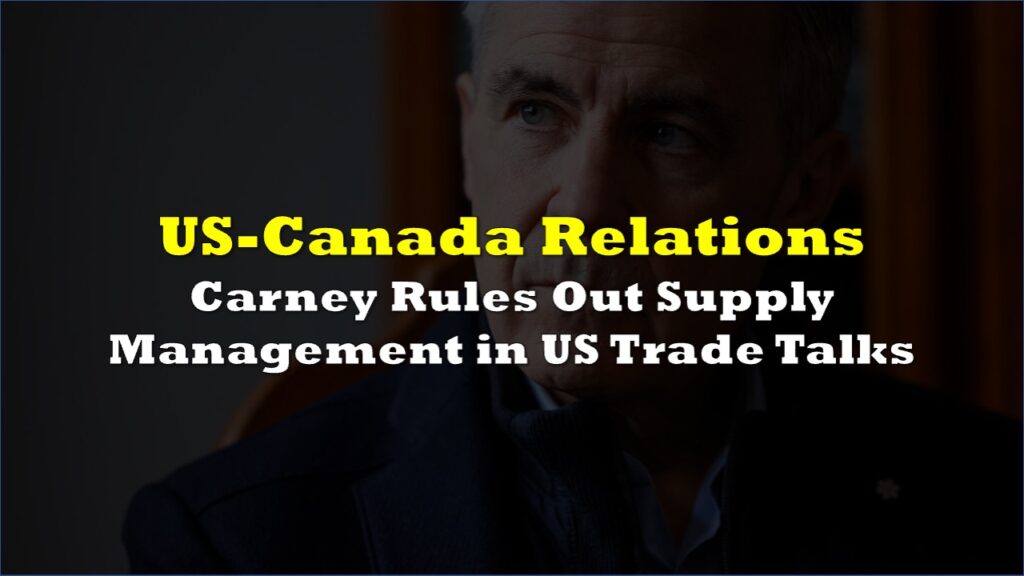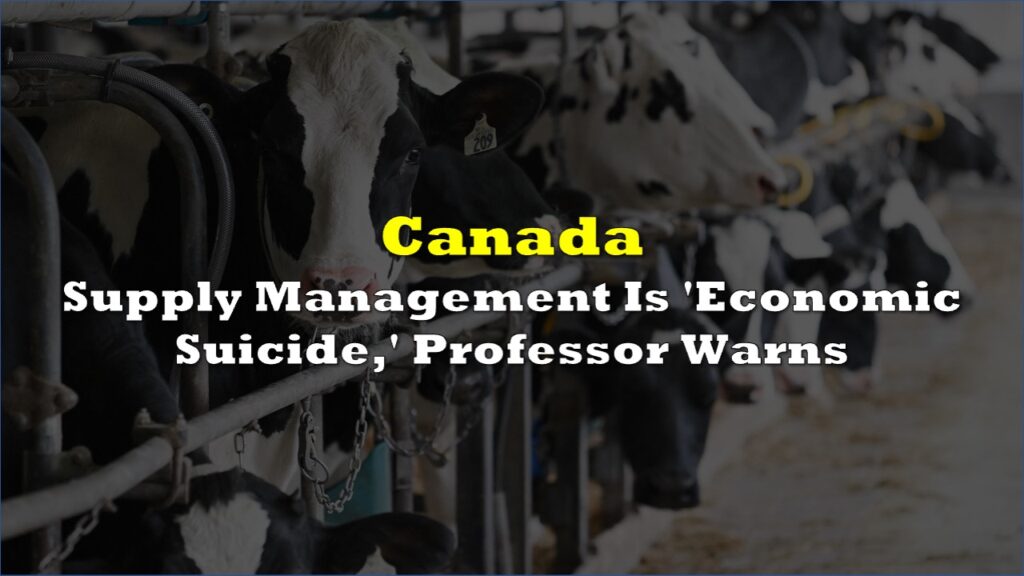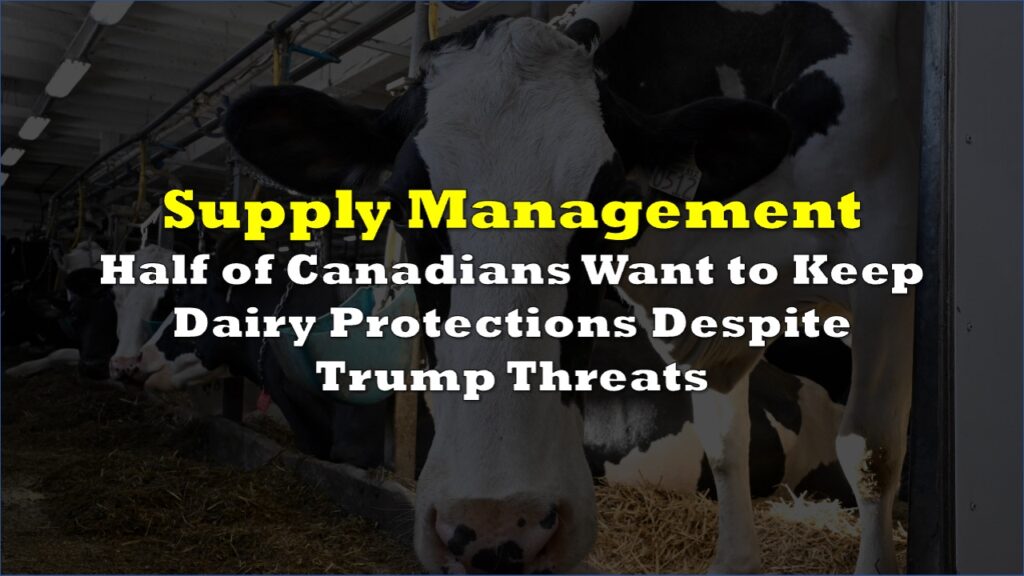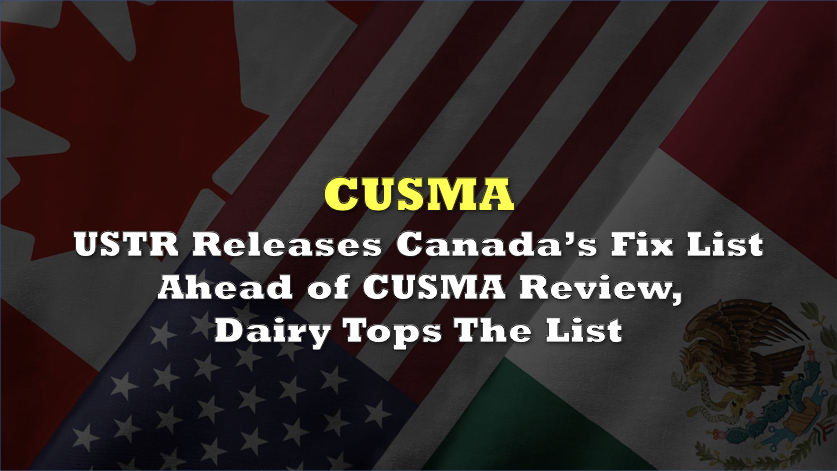Canada’s entrenched supply management system—once a backstop against 1970s market swings—now serves primarily to shield Quebec’s 4,200 small dairy farms, all while capping western provinces at 16% of national output and granting Quebec 37%. That protection has come at a steep cost: $11 billion of milk dumped between 2012 and 2024, near-300% import tariffs, and repeatedly thwarted trade negotiations.
By design, supply management allocates production quotas by population, not by efficiency. Prairie herds average 183–194 cows; Quebec herds average 83, yet western provinces are artificially constrained.
In June 2024, a video of a Southern Ontario farm worker dumping 30,000 litres of milk—because regulators forbid selling beyond quota—went viral.
READ: How Over 200% Tariffs Prove That Supply Management Must End
Political muscle plays a decisive role. In 2022, the Bloc Québécois introduced Bill C-282 to bar any future government concessions on dairy, egg, and poultry quotas. This was reintroduced as Bill C-202 after the 2025 election and sailed through the House and Senate with unanimous support. That legislation legally forbids Ottawa from yielding ground in trade talks—a stark signal that maintaining supply management ranks higher than securing new export markets.
Every major trade negotiation of the past decade has been held ransom by Canada’s dairy protections. To join the Comprehensive and Progressive Agreement for Trans-Pacific Partnership, Canada ceded 3.25% tariff-free dairy access; subsequent deals with the EU and the US forced further carve-outs, each offset by billions in producer compensation.
Yet the Canada–UK agreement remains unsigned—largely because Ottawa refuses to budge on quotas. Meanwhile, US negotiators have made clear that expanded access to Canada’s supply-managed sectors will be a non-negotiable demand next round.
Supply management’s hidden tax estimated $300–444 per household annually before the pandemic disproportionately burdens low-income families, forcing difficult trade-offs between essentials and nutrition. Environmentally, dumping 11 billion litres of milk over 12 years has wasted prodigious volumes of water, feed crops, and the greenhouse gases embedded in production—a half-decade of ecological loss under the banner of stability.
Dr. Stuart Smyth, a professor in the Department of Agricultural and Resource Economics at the University of Saskatchewan, outlined recommendations in phasing out supply management:
- 10 percent annual cuts to quotas and over-quota tariffs over ten years;
- Nationwide trading of quota licences, allowing efficient Prairie operators to buy out smaller Quebec farms at fair market value;
- Loan backstops to prevent banks from calling in debts as licence values fall;
- 10-year equity guarantees for young farmers to modernize and scale operations.
These measures would unwind political protections, restore market signals and smooth the transition without a catastrophic collapse of rural livelihoods.
Information for this briefing was found via Macdonald-Laurier Institute and the sources mentioned. The author has no securities or affiliations related to this organization. Not a recommendation to buy or sell. Always do additional research and consult a professional before purchasing a security. The author holds no licenses.

